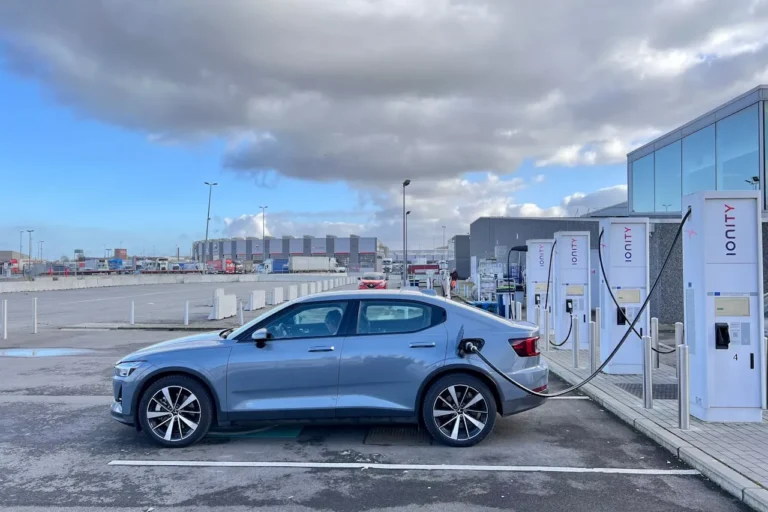
The “Hydrogen Engine: Global Markets” report has been added to ResearchAndMarkets.com’s offering.
The hydrogen engine market was valued at $2.6 billion in 2022 and is projected to reach $10.5 billion by 2028. This market is expected to grow at a CAGR of 26.8% between 2023 and 2028.
Nowadays, most countries worldwide are looking for alternative solutions to decarbonization. Hydrogen as a fuel is one of the best alternative solutions for carbon emissions-related issues. In the automotive industry, heady duty trucks are the major CO2 gas emitter in the environment. Therefore, automakers are working significantly on hydrogen-powered trucks.
Currently, fuel-cell electric vehicles are available in most developed countries, such as the U.S., Germany, Japan and others. Since these vehicles are very costly compared to conventional vehicles, the governments of individual countries are providing incentives to vehicle purchasers and OEM companies to decrease the overall cost of vehicles.
Currently, proton membrane exchange technology is the main technology used for fuel cells because it can produce electricity frequently, which helps propel vehicles continuously. However, fuel cell companies and automotive companies are working together to develop different types of fuel cells for vehicles, such as phosphoric acid fuel cells and others. Still, this option could increase the overall price of vehicles.
Most OEM (Original Equipment Manufacturer) companies, such as Hyundai, Toyota, Volvo & Daimler, and others, are engaged in producing fuel cell vehicles. However, many OEM companies are working with fuel cell manufacturing companies to design and produce a complete vehicle. Conversely, a few OEM and aftermarket companies can convert vehicles from gasoline/diesel-powered to hydrogenpowered vehicles. Once the hydrogen infrastructure is ready, fleet operators of trucks, taxis, rented vehicles and the like could choose the conversion option.
Currently, fuel cells are integrated with passenger cars, buses and commercial vehicles. Due to the high cost of fuel cell trucks, the commercial vehicle segment dominates the global market. For passenger cars, only two companies, Hyundai and Toyota, offer commercial fuel cell cars across the globe. In comparison, most of the companies are working on heavy-duty trucks.
The study examines the scenario for fuel-cell electric vehicles and provides the market potential for such vehicles in the coming five years. The study also provides market dynamics such as drivers, restraints, trends and opportunities in the global market. Furthermore, the report includes a chapter deliberately for fundings and M&A related information.
Report Includes
- An overview of the global markets for hydrogen combustion engine technology
- Estimation of market size and analyses of global market trends, with data from 2022, estimates for 2023, and projections of compound annual growth rates (CAGRs) through 2028
- Assessment of the regulatory environment, demographics, and other factors that directly affect the hydrogen combustion engine technology market
- Discussion on the implications of hydrogen combustion engine technology in the context of the current size and growth of the market
- Evaluation of key industry acquisitions and strategic alliances and market share analysis of the leading suppliers of the industry
- Company profiles of major players within the industry, including Cummins Inc., Honda Motor Co. Ltd., Hyundai Motor Co., Tata Motors Ltd., Hyzon Motors, and Nikola Corp.
Key Topics Covered:
Chapter 1 Introduction
Chapter 2 Summary and Highlights
Chapter 3 Market Overview
- Current Market Overview
- Brief History of Fuel Cell Vehicles
- Technology Roadmap for Hydrogen Fuel Cell Vehicles
- Co2 Emission in the Transportation Industry
- Advantages and Disadvantages of Hydrogen-Powered Vehicles
- Cost Analysis of Fuel Cells for the Transportation Industry
- Incentives to Purchase Fuel Cell Electric Vehicles
- Value Chain Analysis
- Porter’s Five Force Model
- Pestel Analysis
- Impact of Covid-19 on the Market for Hydrogen Engines
- Impact of Russia-Ukraine War on the Global Hydrogen Engine Industry
- Industry Expert Insights
Chapter 4 Market Dynamics
- Introduction
- Market Dynamics
- Market Restraints
- Challenges
- Market Opportunities
- Market Dynamics Impact Analysis
Chapter 5 Market Breakdown by Technology
- Overview
- Proton Membrane Exchange
- Components of a Fuel Cell
- Fuel Cell Stack
- Fuel Processor
- Power Conditioners
- Air Compressors
- Humidifiers
- Components of Pem Fuel Cell
- Membrane Electrode Assembly
- Hardware
- Hydrogen Production Methods
- Types of Fuel Cells
- Phosphoric Acid Fuel Cell and Others
- Direct Methanol Fuel Cells (Dmfc)
- Alkaline Fuel Cells (Afc)
- Molten Carbonate Fuel Cells (Mcfc)
- Solid Oxide Fuel Cells (Sofc)
- Reversible Fuel Cells
Chapter 6 Market Breakdown by Sales Channel
- Overview
- Oems
- Retrofitting/Conversion
Chapter 7 Market Breakdown by Vehicle Type
- Overview
- Global Market Based on Vehicle Type
- Passenger Cars
- Buses
- Commercial Vehicles
- Additional Applications of Hydrogen Fuel Cells in the Transportation Industry
Chapter 8 Market Breakdown by Region
Chapter 9 Emerging Technologies and Developments
- Hydrogen-Powered Technology Assessment
- Trends
Chapter 10 Patent Analysis
- Overview
- Recent Key Granted Patents
Chapter 11 M&A and Funding Outlook
- M&A Analysis
- Startups Funding in Hydrogen Engine
Chapter 12 Competitive Landscape
- Market Share Analysis
- Strategy Analysis
- Swot Analysis in Brief for the Global Market
- Key Developments
Chapter 13 Company Profiles
- Cummins Inc.
- Daimler Truck AG
- General Motors
- Honda Motor Co. Ltd.
- Hyundai Motor Co.
- Hyzon Motors
- Man Energy Solutions Se
- Nikola Corp.
- Tata Motors Ltd.
- Toyota Motor Corporation







